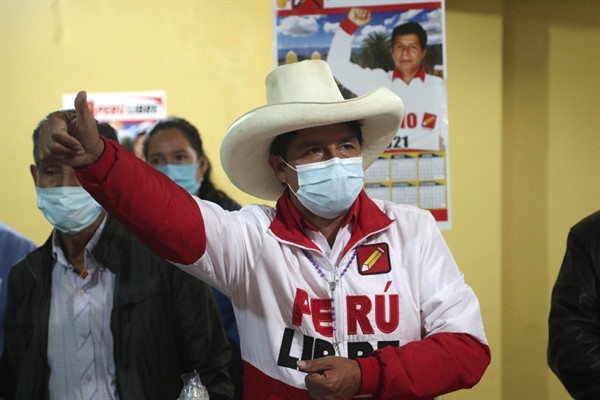A dozen years ago, when Peruvians were heading to the polls for a presidential runoff election, the acclaimed novelist Mario Vargas Llosa, who had himself once tried his hand at politics, famously likened the choice voters faced between the two remaining candidates to that between AIDS and cancer. Since then, Peruvians have seen their political system careen off the rails, culminating in last weekend’s first-round presidential election, the outcome of which sent financial markets tumbling and left the country in shock.
A mind-boggling 18 candidates were on the ballot, ensuring a thoroughly fragmented vote and an unpredictable result. But even those who expected the unexpected didn’t imagine that the largely unknown Pedro Castillo and his very far-left party, Peru Libre, would take first place.
If Castillo’s victory came as a surprise, the second-place finisher—who will go head-to-head with him in the second round in June—left millions of Peruvians as despondent about the choice they will now face as many were 12 years ago. Keiko Fujimori—the right-wing daughter of the imprisoned, authoritarian former President Alberto Fujimori—appears to have edged out her closest opponents, setting the stage for a far-left versus far-right election. Peruvians who wanted centrist policies are left with a dilemma likely to elicit revulsion—and perhaps new metaphors from Vargas Llosa, now living in Spain.

